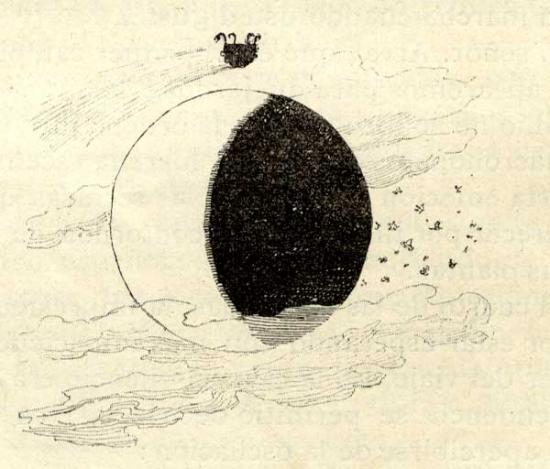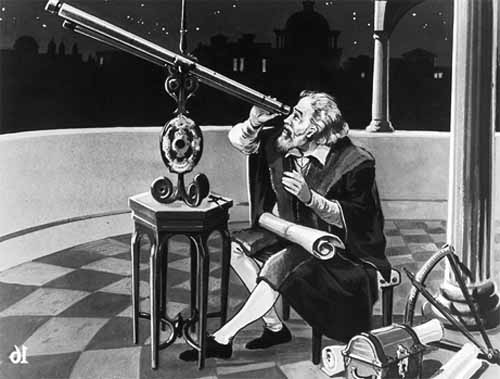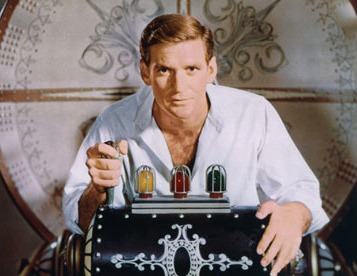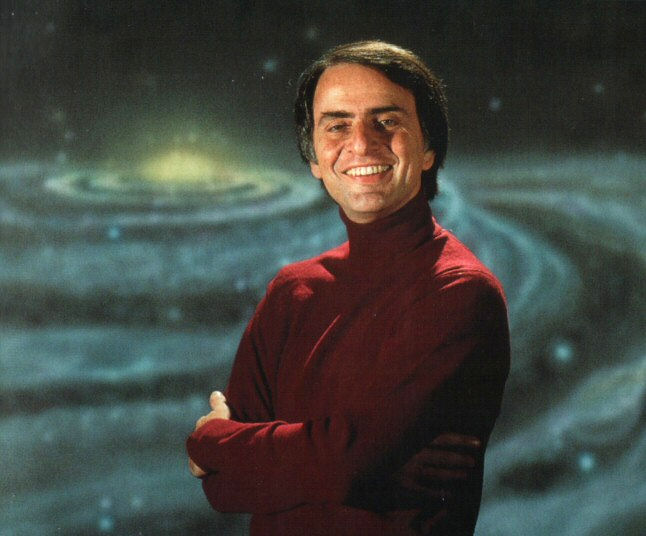H. G. Wells The Time Machine marked a turning point not only in science fiction, but the time travel genre; but he wasn’t the first one to come up with the idea of a “time machine”. We go into this more in depth in the documentary, but I thought I would share some time travel stories I found that featured time machinery pre- H.G. Wells.
1) El Anocronópete (1887)
Spanish science fiction fans, this is for you. Beating H.G. Wells’ The Time Machine to print by 7 years, author Enrique Gaspard created an elaborate cast iron ship called, “El Anacronópete”. Using electricity, pneumatic tubes, and some strange fluid that prevents passengers to grow younger when they travel back in time, a haphazard group of characters travel from the World’s Fair in Paris 1878 to various moments in history like the Battle of Tetuán in Morocco, to Granada, Spain in 1440, and 3rd Century China. It’s a fantastical, adventurous story that, like The Time Machine, also uses time travel to explore social issues, albeit in a lighthearted comedic way.
 |
| Illustrations from El Anocronópete |
Read the original version here: https://archive.org/details/elanacronpete00gaspgoog
 |
| Galileo's telescope, unfortunately not a Historioscope. |
Eugène Mouton, considered an early writer of science fiction, was a French writer of Creole descent. His short story, L’Historioscope, tells a story about a historian who meets a very eccentric old gentleman who has invented a means of actually seeing the past. In this case the time machine is sort of an electrical telescope in while a person can look back into history by tracking light waves from past events as they spread through the ether into space.
This is actually pretty cool because NASA is building a “time machine” telescope with the ability to see 13.5 billion years ago… http://www.msn.com/en-us/news/technology/nasa-builds-a-time-machine-telescope-100-times-as-powerful-as-the-hubble/ar-BBemBWW
You can read the short in this obscure, translated French anthology of short scifi stories: http://www.amazon.com/News-Moon-French-Science-Fiction-ebook/dp/B0066QDC7K
 |
| Astronomical Clock, Prague |
Considered by many to be the first story published to feature a time machine (if you count a clock as a time machine!), The Clock That Went Backwards is a short story follows two cousins and a mysterious clock that takes them 300 years into the past. It wasn’t until after his death that U.S. writer Edward Mitchell was identified as the author. I tried looking into more information about Mitchell, but there seems to only be one book devoted to his work (nowhere online), and it stresses his importance to modern science fiction literature. He wrote some of the very first stories featuring:
- Faster-than-light travel ("The Tachypomp," 1874)
- Teleportation ("The Man Without a Body," 1877)
- Mind transfer ("Exchanging Their Souls," 1877)
- Cybernetics ("The Ablest Man in the World," 1879)
- Cryogenic preservation ("The Senator's Daughter," 1879)
You can read the story here: http://www.forgottenfutures.com/game/ff9/tachypmp.htm#clock
H.G. Wells and his contemporaries were writing these stories during the 2nd Industrial Revolution- where “machines” were synonymous with scientific progress and societal advancements such as the steam engine, the automobile and the type writer. The ability to create a machine to accomplish the fantastical now seemed possible, and to these writers, it encouraged the idea that perhaps we could create an apparatus that could even allow us to jump through time.
And today, this archetype has evolved into a hot tub, police box, telephone booth, a car... who knows what the next iconic image of a time machine will be?
And today, this archetype has evolved into a hot tub, police box, telephone booth, a car... who knows what the next iconic image of a time machine will be?





















